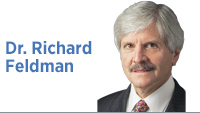Subscriber Benefit
As a subscriber you can listen to articles at work, in the car, or while you work out. Subscribe Now
“Magic mushrooms” for the treatment of resistant depression and anxiety? Really?
Recent studies conducted by respected institutions on psychedelic-drug treatment of emotional and substance-abuse disorders have been reported in mainstream medical journals. Example publications are the New England Journal of Medicine, the Journal of Psychopharmacology, and the Journal of the American Medical Association. Authoring Institutions include Harvard University, Johns Hopkins University and New York University. This is in no way fringe science.
Various psychedelics demonstrate efficacy. However, the major research and treatment focus is on psilocybin, the psychoactive component in magic mushrooms.
Research on the therapeutic uses of psychedelics is not new, originating in the 1950s. It ended in 1970 with President Nixon’s “War on Drugs” (the Controlled Substances Act) when psilocybin and other drugs became illegal.
Treatment-resistant depression is the major condition studied. Also researched are resistant anxiety and post-traumatic stress disorder; obsessive-compulsive disorder; alcohol, tobacco and opioid abuse disorders; and end-of-life anxiety and depression, all with promising results.
Model psilocybin-treatment protocols for depression are very structured, with pre-treatment preparatory consultations and very controlled treatment sessions. Medication administration is monitored by facilitators in a safe environment to eliminate harm from induced cognitive, psychological and perceptual alterations, followed importantly by post-treatment supportive psychotherapy.
The advantages of psilocybin treatment are that a single low dose (or possibly a second dose) produces long-term benefit ranging from months to years and that the medication is not given to the patient for home use, greatly reducing the potential for abuse and diversion. Also, psilocybin is a physiologically safe medication, having an unattainable lethal dose, and is non-addictive. It’s generally well-tolerated, and side effects are transient. It’s safer than many other psychoactive medications.
A study by Johns Hopkins School of Medicine published in the Journal of Psychopharmacology is representative of studies demonstrating psilocybin’s durable efficacy for treatment-resistant depression. Significant decreases in depression were seen immediately and persisted during the 12-month duration of the study. Average severity of depression decreased 300% at 12 months, with a 75% response rate and a 58% remission rate.
Psilocybin acts on a specific serotonin receptor in the brain, which enables therapeutic benefits by producing a neurophysiologic window of “brain plasticity.” This creates greater receptiveness to healthy self-reflection and to new ideas and new thought patterns, underscoring the importance of adding supportive psychotherapy to the medication treatment.
In 2018, the U.S. Food and Drug Administration designated psilocybin a “breakthrough medication” (having potential medical benefits beyond current therapies). This opened the door to permissible therapeutic use and FDA-approved research protocols.
In September, the General Assembly’s Interim Public Health Study Committee, of which I am a lay member, heard compelling testimony regarding the therapeutic potential of psilocybin. The committee voted to recommend that the Legislature authorize “Indiana state research institutions to conduct a pilot clinical study … to explore the efficacy, safety, and feasibility of psilocybin-assisted therapy in Indiana.”
The breakthrough status also facilitates states in reclassifying psilocybin from an illegal schedule I drug (no accepted medical use with high potential for harm) to a legal schedule II drug even though the Drug Enforcement Agency has not reclassified its schedule I status federally. Reclassification also would support therapeutic use and research efforts.
At least 30% of depression is treatment-resistant and something I clinically see routinely. Many states are moving to make statutory changes to either decriminalize or more appropriately enable psilocybin research and treatment availability. Indiana should be one of them.•
__________
Feldman is a family physician, author, lecturer and former Indiana State Department of Health commissioner for Gov. Frank O’Bannon. Send comments to [email protected].
Click here for more Forefront columns.
Please enable JavaScript to view this content.
